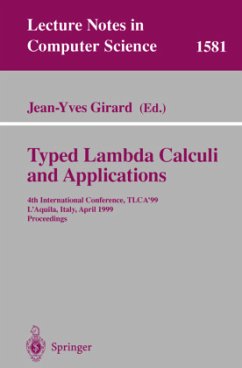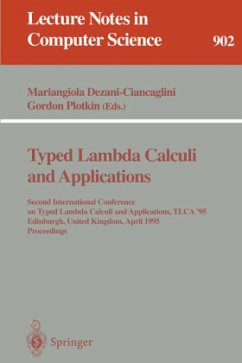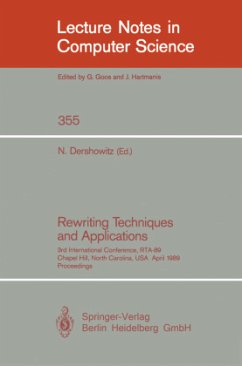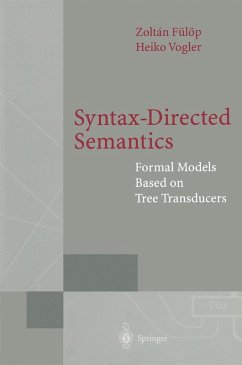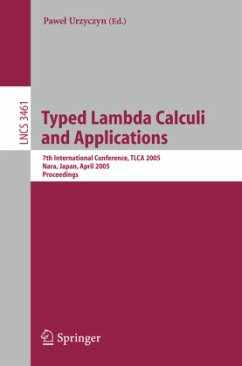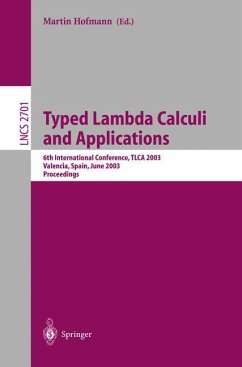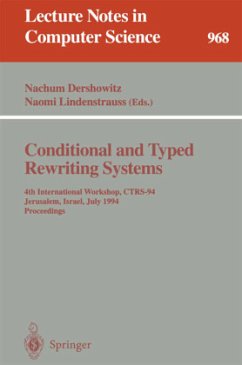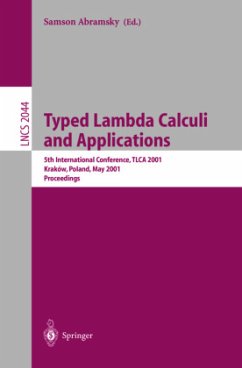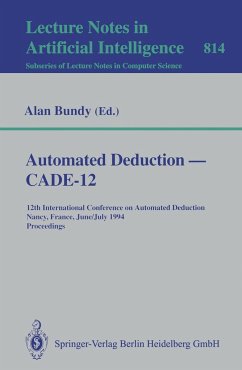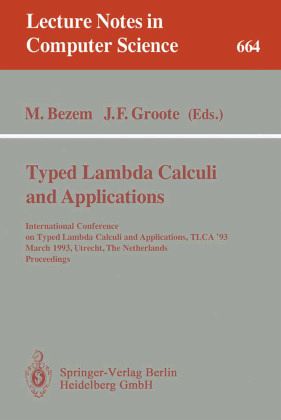
Typed Lambda Calculi and Applications
International Conference on Typed Lambda Calculi and Applications, TLCA '93, March 16-18, 1993, Utrecht, The Netherlands. Proceedings
Mitarbeit: Bezem, Marc; Groote, Jan F.
Versandkostenfrei!
Versandfertig in 1-2 Wochen
39,99 €
inkl. MwSt.

PAYBACK Punkte
20 °P sammeln!
The lambda calculus was developed in the 1930s by AlonzoChurch. The calculus turned out to be an interesting modelof computation and became theprototype for untypedfunctional programming languages. Operational anddenotational semantics for the calculus served as examplesfor otherprogramming languages.In typed lambda calculi, lambda terms are classifiedaccording to their applicative behavior. In the 1960s it wasdiscovered that the types of typed lambda calculi are infact appearances of logical propositions. Thus there are twopossible views of typed lambda calculi:- as models of computation, whe...
The lambda calculus was developed in the 1930s by AlonzoChurch. The calculus turned out to be an interesting modelof computation and became theprototype for untypedfunctional programming languages. Operational anddenotational semantics for the calculus served as examplesfor otherprogramming languages.In typed lambda calculi, lambda terms are classifiedaccording to their applicative behavior. In the 1960s it wasdiscovered that the types of typed lambda calculi are infact appearances of logical propositions. Thus there are twopossible views of typed lambda calculi:- as models of computation, where terms are viewed asprograms in a typed programming language;- as logical theories, where the types are viewed aspropositions and the terms as proofs.The practical spin-off from these studies are:- functional programming languages which aremathematically more succinct than imperative programs;- systems for automated proof checking based on lambdacaluli.This volume is the proceedings of TLCA '93, the firstinternational conference on Typed Lambda Calculi andApplications,organized by the Department of Philosophy ofUtrecht University. It includes29 papers selected from 51submissions.





